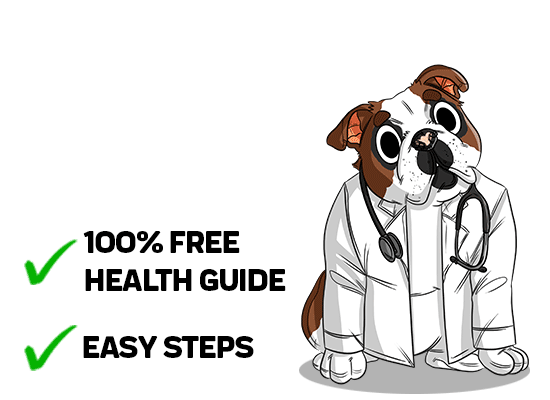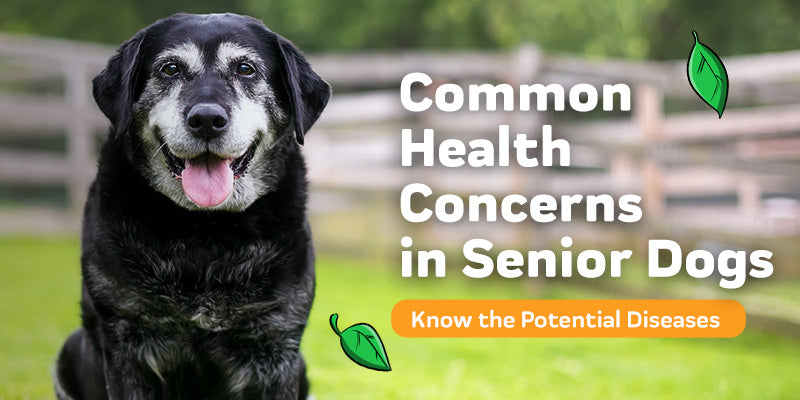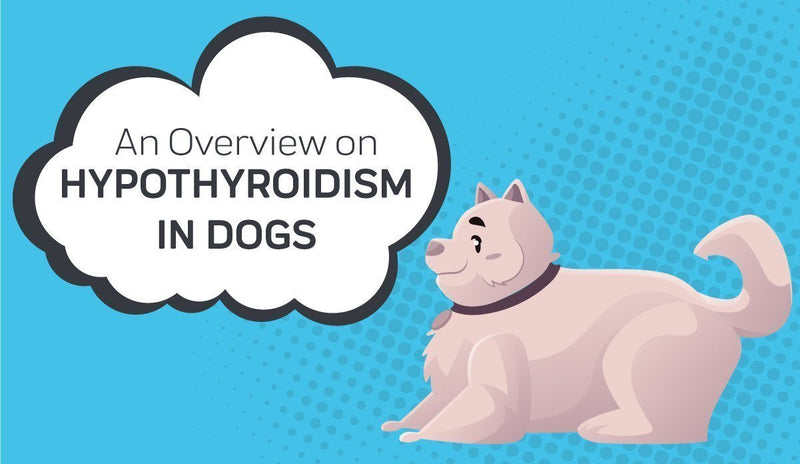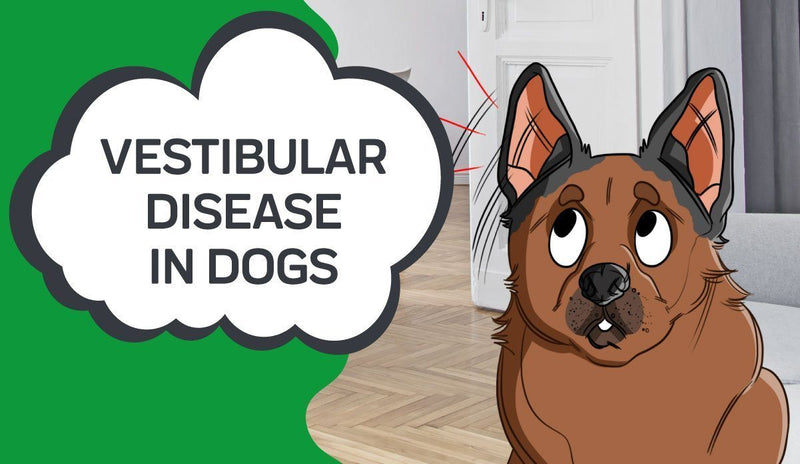- What is Equine Cushing's Disease?
- What Type of Horses are Prone to Cushing’s Disease?
- Can Cushing’s Disease in Horses Be Eradicated?
- Symptoms of Cushing’s Disease in Horses
- What Happens if Cushing’s is not Treated?
- Confirmation if Your Horse has Cushing’s Disease
- Ways to Heal Cushing’s Disease in Equines: Treatment for Cushing's in Horses

Horses are magnificent creatures prized throughout the world for their gracefulness and beauty. However, these animals tend to be prone to many diseases, especially Cushing’s disease. While this can sometimes be mistaken for other health issues, like Equine Metabolic Syndrome, this disease can be very dangerous to your horse’s health if not treated. Below is more about what this disease is and how you can help to treat your horse if they happen to be diagnosed with it.
What is Equine Cushing's Disease?

Also known as Pituitary Pars Intermedia Dysfunction (PPID), Cushing’s syndrome is when the horse’s pituitary gland is out of balance. This is usually caused due to a type of growth on the gland, like a tumor. Because the pituitary gland is at the base of the brain and creates hormones, your horse’s regular hormonal production can be destroyed. The gland becomes out of whack due to abnormal functioning in the brain which controls it.
What Type of Horses are Prone to Cushing’s Disease?
There is no particular breed of horse that is prone to Cushing’s disease. However, many older horses, around 18 to 23 years old, tend to get it. Shorter horses also seem to be diagnosed a lot with this problem. Overall though, if you have an older horse, you want to keep a close eye on them because they are more susceptible to Cushing’s syndrome as their immune system might not be the strongest.
Can Cushing’s Disease in Horses Be Eradicated?
This disease can’t be fully erased from your horse’s health, but it can be regulated to help them get back to living their normal lifestyle. It will require the use of medication, diet changes, and supplements, but these can help to normalize the pituitary gland so your horse can get back to living normally.
However, to ensure that this disease can be controlled with proper care, you have to keep an eye out for clinical signs as early as possible. If not given treatment immediately, the disease will spread and only cause your horse’s health to get worse.
Symptoms of Cushing’s Disease in Horses
There are a few clinical signs to watch out for if you’re not quite sure whether or not your horse might have Cushing’s disease (Pituitary Pars Intermedia Dysfunction PPID).
Below are some concerning symptoms of Cushing's in horses to keep in mind:
Long Curly Hair
Because Cushing's disease is a hormonal disorder in your horse, it can cause them to start growing a long curly hair coat. This is especially concerning if your horse does not shed it's winter coat as it should during the spring. Most of this curly hair will form around the neck and lower stomach area.
Strange Body Curves
Another symptom of horse Cushing's is strange body curves which are caused by fluctuating hormone levels. Also known as regional adiposity, these fat deposits will cause their body to look somewhat lumpy and irregular due to the hormones being imbalance and therefore causing fat build-up.
Low Energy
Horses and ponies love to walk and run which is why low energy is a very concerning sign. This could be a sign of Cushing’s disease lowering their muscles and blood pressure which can result in lethargy and loss of muscle. If not taken to a vet, your horse could eventually become too lethargic to walk or eat which could be deadly.
Strange Sweating
Cushing's can also create strange sweating in your horse. Horses are able to sweat which helps to reduce their temperature when their body is hot. However, excessive sweating can be a sign of concern. It could show that they have a fever or their hormones are malfunctioning.
Blindness
Because Cushing's in horses can affect the pituitary gland and a tumor can result in pressure on the optic nerve, some horses can go blind from it. If you find your horse is having neurological problems, such as blindness or troubling walking, it could be a sign they have this disease.
Increased Need for Water

As this disease can affect the brain and cause your horse's hormones to go haywire, it can warp your horse’s normal functions, such as telling the body when it needs to drink. If you find your horse has increased drinking and urination, you want to take them to your vet immediately, as Cushing's disease in horses often leads to pre-diabetes.
Ulcers in the Mouth
Another sign of Cushing disease in horses is ulcers in the mouth. This is because the disease can affect your horse’s dental health which can invite harmful bacteria in the mouth which can form ulcers. Ulcers are also a sign of bad immunity in horses which can be a telltale sign of this disease.
What Happens if Cushing’s is not Treated?
Horses with Cushing's that is left untreated will lead to many horrific problems down the road. One of the most common problems is laminitis, which is when the feet started to develop abscesses and harmful bacteria. This could make it hard for them to walk and do daily activities. It can also make it difficult for you to ride them as the extra weight could make it uncomfortable for their back or legs if they have abscesses and they've had significant weight loss.
Also, if not treated, it can lead to severe lameness which could lead to you need to have their leg amputated. It could also affect their skin and normal shedding as well as cause abnormal fat deposits to develop around their body.
Confirmation if Your Horse has Cushing’s Disease
If you find your horse is having the symptoms mentioned above, you want to take them quickly to your vet. When there, your vet will run a series of tests on them, including a few blood tests. One test will look at the adrenocorticotropin hormone which is directly affected by the pituitary gland. The other important test your vet will more than likely take is a thyrotropin-releasing hormone one. To do this, they will take some blood and then mix it with a small amount of thyrotropin-releasing hormone. After a few minutes, they will then take another sample of blood from your horse and put it into the current mix. By doing so, they can tell if there is an abnormal level of hormones produced which can be a sign of Cushing’s disease.
By conducting these tests, they will be able to tell if your horse does in fact have this disease or if there might be another problem.
Ways to Heal Cushing’s Disease in Equines: Treatment for Cushing's in Horses
Thankfully, if you find that your horse has Cushings disease, there are a few ways it can be healed.
Below are some options to consider:
Use Cushing’s Medication
One of the most important ways to help heal Cushing’s is to use medications. Your vet will more than likely prescribe pergolide mesylate which helps to normalize the pituitary gland. This drug, also used to help with Parkinson's disease in humans, works to help the receptors that control dopamine production. This can eventually lead to a normal balance of hormones in their body as it tricks the brain.
Feed them Supplements
As with most animals, supplements can be a helpful treatment to their health. Horses can also benefit from taking supplements, especially if they have Cushing’s disease.
Chasteberry
This supplement is important to consider giving your horse as it helps to regulate endocrine functions in their body. Taken from the chaste tree, chasteberry helps to normalize hormones in your horse's body. This can improve their mood while also calming some of the symptoms of equine Cushing’s disease down. It’s also packed with antioxidants and anti-inflammatory properties which are very useful when it comes to healing symptoms of this disease.
Flaxseed
Flaxseed can help reduce the insulin resistance that Cushing's can create. It also reduces inflammation which is important when it comes to healing this terrible disease. Flaxseed is high in Omega-3s which help to improve their immune system and calm their nerves which could be affected by Cushing’s disease.
Fish Oil

Fish oil is packed with Omega-3s which, just like flaxseed, helps to improve their immunity, nerves, skin, and gastrointestinal problems. It also helps to keep their muscles and joints strong which is important as Cushing’s heavily affects these areas in the body. While horses do not eat fish as their normal diet, you can mix a spoonful of it in their feed to help ensure they consume it. However, it’s a good idea to talk with your vet beforehand about fish oil to make sure it’s safe to use with your horse and their current medical problems.
Vitamin B6
It’s a good idea to add some Vitamin B6 to your horse’s diet. This helps to support hormone production which can level out excessive amounts of it. Vitamin B6 also works to regulate pituitary functions and insulin levels which is vital if your horse has Cushing’s.
Amino Acids
Amino acids are very important to give your horse if they have Cushing’s disease. They help to form proteins in the body, something which your horse needs in order to survive. When horses consume amino acids, these particles immediately go to work in their stomach where they are broken down and then absorbed. They are then converted into monosaccharides which are an important carbohydrate horses need as it helps with their metabolic functions.
Some of the most vital to consider giving them are lysine, threonine, and methionine. Lysine works to help restore tissues, ligaments, and hormones in the body. Threonine helps to regulate the gastrointestinal tract which can be greatly affected by Cushing’s disease. It also helps to calm stress in their body and encourage better metabolism. Methionine is yet another crucial amino acid as it helps horses produce healthy bacteria in their gut. However, they are unable to produce this amino acid themselves which is why it needs to be in their food. You can give your horse these amino acids through supplements or with various types of hay, like flax and rice bran. It can also be given to them through sunflower seeds which also serve as a tasty snack.
Keep in mind that before you give your horse any type of supplement, talk it over with your vet. Sometimes certain supplements might not be right for your horse based on their age or current medications.
CBD Oil
CBD oil for horses will not cure Cushing’s, but it can help to lower the symptoms of it. In fact, many horse owners who have used this oil on their horse with the disease have found that it helps to relax them. This can prevent painful muscles and keep their body free from stress. It also works to stop inflammation, something which Cushing’s creates a lot of. For instance, because horses with Cushing’s disease are more susceptible to getting laminitis, equine CBD can help to prevent this severe case of inflammation. It also reduces the pain that could be shooting up their legs from this terrible side effect. By giving them CBD oil, it can also help them to move around more freely as it keeps the joints healthy, especially if they are older horses.
Besides these benefits, CBD oil can also improve their immune system, something which is very important to keep healthy when they have this issue. This is because it contains traces of fatty acids, like Omega-3s, which are very beneficial to their health.

CBD oil is taken from the flower of the cannabis plant, but is not psychoactive as it doesn’t contain THC. This oil contains over 80 different types of cannabinoids which work with the brain to help calm it and ensure it functions normally. While studies are still being done to show the benefits of CBD oil, many have already proven the remarkable advantages of using it.
To give your horse CBD oil, you can simply take some out of the bottle with its dropper and mix it into their food. This will ensure that they consume it and get the necessary amount. However, before you do so, make sure to talk this over with your vet. They will be able to tell you the right amount of oil to give your horse based on things such as their weight and age.
Change Their Diet
If your horse has Cushing’s you need to watch their diet. Ideally, you should feed them a low carb and high-fat diet which will help to prevent muscle loss, a major side effect of the disease. While horses like to graze on grass, like clover, it’s important to limit their intake of them. This is because they are high in carbohydrates. Alfalfa, in particular, is ideal to give to horses with this medical problem as it’s high in protein.
Your vet will more than likely recommend a specialized feed you can buy to give them. This customized feed will include things like hay and pellets that will work to keep your horse healthy based on their age, weight, and medical history.
While you can use this feed, you can also add some of your own things to their diet. Some items to add to their meals include fish oil and rice bran. However, make sure to talk this over with your vet to ensure it doesn’t somehow cause more harm than good for your horse’s specific problems.
Make Appointments Throughout the Year with Your Vet
Healing Cushing’s disease means you need to have the help of a professional. Your vet should be visited a few times a year so your horse can be checked out. Your vet will then be able to tell if more work needs to be done, medication needs to be administered, or if other problems are starting to occur. Numerous veterinary checks throughout the year will help to keep your horse healthy and prevent this disease from getting worse.
Have Parasite Control
Unfortunately, when a horse has Cushing’s they are more likely to be susceptible to having parasitic problems. This is because their immune system is compromised which can invite bacteria and parasites, like tapeworms and stomach bots. Because of this, it’s important to have your vet do occasional tests to ensure that there are no signs of these nasty parasites which could worsen
Make Sure to Have Regular Farriery Care
Because Cushing’s can cause abscesses to hooves, you want to make sure to have regular farriery care. This specialist will be able to look at their hooves, clean them, or add shoes if necessary to help them. They also can alert you to possible problems.
However, you should also make sure to keep a watchful eye on your horse’s feet and gait yourself. While a farrier can work to heal the problem, you can help to prevent it from possibly getting worse. So, you’ll want to watch carefully how your horse walks, runs, or if they have strange growths or inflammation on their hooves. By watching them, you can help to prevent serious issues down the road.
It can be a bit scary to learn your horse has Cushing’s disease, but thankfully it can be healed if treated immediately. The disease is an intricate problem, but by researching and understanding it, you can better help to keep your horse healthy. By keeping the information above in mind and talking things over with your vet, your horse can get back to frolicking around.
Sources
Approved by:
Dr. Ivana Vukasinovic
Doctor of Veterinary Medicine, University of Belgrade
 Ivana Vukasinovic grew up in Serbia and attended the University of Belgrade where she received a degree in Veterinary medicine in 2012 and later completed surgical residency working mostly with livestock. Her first year of practice was split between busy small animal practice and emergency clinic, and after two more years of treating many different species of animals, she opened her own veterinary pharmacy where an interest in canine and feline nutrition emerged with an accent on fighting animal obesity. In her free time, she acts as a foster parent for stray animals before their adoption, likes to read SF books and making salted caramel cookies.
Ivana Vukasinovic grew up in Serbia and attended the University of Belgrade where she received a degree in Veterinary medicine in 2012 and later completed surgical residency working mostly with livestock. Her first year of practice was split between busy small animal practice and emergency clinic, and after two more years of treating many different species of animals, she opened her own veterinary pharmacy where an interest in canine and feline nutrition emerged with an accent on fighting animal obesity. In her free time, she acts as a foster parent for stray animals before their adoption, likes to read SF books and making salted caramel cookies.
Thanks for stopping by!
P.S. We Love You!
Sincerely,
The Innovet Team
Please do not ask for emergency or specific medical questions about your pets in the comments. Innovet Pet Products is unable to provide you with specific medical advice or counseling. A detailed physical exam, patient history, and an established veterinarian are required to provide specific medical advice. If you are worried that your pet requires emergency attention or if you have specific medical questions related to your pet’s current or chronic health conditions, please contact or visit your local/preferred veterinarian, an animal-specific poison control hotline, or your local emergency veterinary care center.
Please share your experiences and stories, your opinions and feedback about this blog, or what you've learned that you'd like to share with others.
LEARN MORE
Best Selling












 CBD Oil for Dogs
CBD Oil for Dogs Advanced Mobility Support Chews for Dogs
Advanced Mobility Support Chews for Dogs All Natural Oatmeal & Honey Shampoo + Conditioner for Dogs
All Natural Oatmeal & Honey Shampoo + Conditioner for Dogs CBD Dog Treats
CBD Dog Treats




